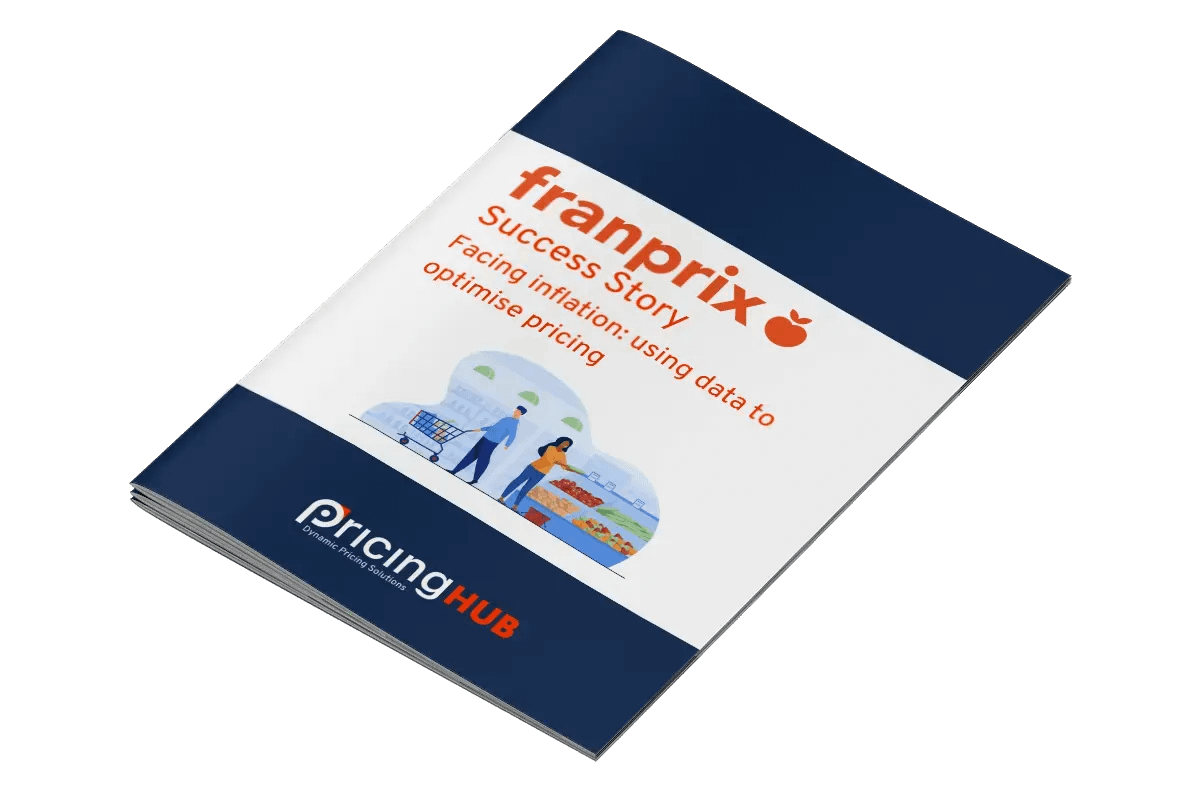Retail pricing software, an essential component of modern business strategy, is transforming the retail and e-commerce sectors. PricingHUB, as a leading SaaS pricing optimization tool, epitomizes this innovation. Tailored for retail leaders, PricingHUB employs artificial intelligence to optimize product pricing across extensive catalogs, aiming to safeguard margins, maximize sales, or bolster revenue. Offering consumer centric and competitor centric optimizations, it accommodates the intricate pricing strategies vital for business success. Retail pricing is fraught with challenges. Retailers must navigate fluctuating market conditions, competitive landscapes, and evolving customer expectations. The primary struggle is balancing profitability with competitiveness, ensuring prices are attractive yet sustainable. Additionally, retailers must manage the large volume of data required to make informed pricing decisions, a task that can be overwhelming without sophisticated retail pricing software. This complexity is further amplified by the need to understand various market factors such as supply chain fluctuations, regulatory changes, and global economic shifts. Retailers also face the challenge of price transparency, where customers can easily compare prices online, increasing the pressure to offer the best value. Moreover, the shift towards omnichannel retailing requires consistent pricing across different platforms, adding another layer of complexity. The ability to rapidly adapt prices in response to competitors’ actions or stock levels is crucial yet challenging, particularly for companies with extensive product ranges or those operating in multiple markets. Retail pricing software, like PricingHUB, streamlines the pricing process through advanced algorithms and machine learning. Our rules engine allows retailers to set prices following predefined business rules, addressing specifics like geography, product categories, and market conditions. On the other hand, we leverage price elasticity, using data analytics to understand consumer price sensitivity and optimize pricing strategies effectively. Furthermore, retail pricing software like PricingHUB facilitates a competitive edge in the market. By analyzing vast datasets, including historical sales, competitor pricing, and market trends, retailers can set prices that not only meet the consumer’s willingness to pay but also stay ahead of competitors. This strategic positioning helps in capturing market share and enhancing brand reputation. Franprix is a major food retailer with over 1,000 shops, of which 600 are franchises that have complete freedom to set their own prices. The shops are divided into several tariff zones, and not all of them are equipped with electronic price tags. This can lead to complex pricing optimization management, a challenge that PricingHUB can overcome. Generating €1.4 billion yearly, the company found itself confronted with the limitations of its old-fashioned tools for managing pricing, which were administered manually. Given the number of points of sale and the high inflation rate, it is now more important than ever to preserve margins with the help of fine and agile pricing management. In this context, the automation of pricing optimization was necessary. Find out how Franprix leveraged its data to evolve its pricing strategies in times of inflation. The future of retail pricing undergoes transformative change, driven by rapid advancements in technology, particularly in artificial intelligence (AI) and machine learning. These technologies, which have not yet reached maturity, will represent major challenges over the next few years. By leveraging these technologies PricingHUB enables more personalized pricing strategies, where prices adjust based on individual customer profiles and purchasing behaviors. PricingHUB, tailored for retail and e-commerce leaders, optimizes product catalog prices using AI to meet business objectives such as protecting margins, maximizing sales, or revenue. Retailers analyze large datasets in real-time, understanding consumer trends and preferences at a granular level. This facilitates the adoption of dynamic pricing models at PricingHUB, where prices continuously adjust in response to market demand and supply fluctuations. Moreover, AI integration in PricingHUB’s pricing software streamlines the pricing process, making it efficient and effective. Predictive analytics plays a crucial role, enabling retailers to forecast market trends and make proactive pricing decisions. This leads to more strategic stock management and pricing adjustments, ensuring retailers meet consumer demand without overstocking or understocking. PricingHUB offers two optimization modules to meet clients’ pricing strategy requirements. The first module allows clients to set rules based on desired details like geography and categories, aligning with business challenges like competitive alignment. Following these rules, PricingHUB recommends prices to maximize client performance in line with their objectives. The second module centers on price elasticity. PricingHUB places clients’ customers at the heart of their pricing strategy, using data streams like product catalogs and sales receipts to implement a machine learning model of reinforcement learning. This experimental approach scientifically measures consumer price sensitivity and the price optimization impact, isolating contextual variations. As a result, PricingHUB’s engine learns quickly, allowing clients to make data-driven decisions to achieve their business goals. Sustainability and ethical considerations are also set to become more prominent in retail pricing strategies. Consumers are increasingly valuing sustainability, leading to a rise in demand for ethically sourced and environmentally friendly products. Retailers will need to consider these factors in their pricing strategies, balancing profitability with social responsibility. This shift could lead to the adoption of pricing models that reflect the true cost of production, including environmental and social impacts, encouraging more sustainable consumer behaviors. Meet with one of our pricing experts Introduction to Retail Pricing Solutions
Challenges in Retail Pricing
How Retail Pricing Solutions Work
This dual approach ensures prices are not only competitive but also align with the retailer’s strategic goals. Retail pricing software integrates with a retailer’s existing systems to analyze historical sales data, market trends, and competitor prices, providing a comprehensive view of the pricing landscape. By automating the pricing process, with the help of PricingHUB, our clients can quickly respond to market changes, reducing the time and effort required for manual price adjustments. They also enable personalized pricing strategies, where prices can be adjusted at the individual product level or even tailored to specific customer segments, maximizing the potential for increased sales and customer loyalty. Furthermore, we offer a simulation tool, helping retailers to foresee the price optimizations and react to future market trends, ensuring they remain ahead in the pricing game. Benefits of Implementing Retail Pricing Solutions
Additionally, our solution enables retailers to implement dynamic pricing strategies. Prices can be adjusted in real time based on supply and demand fluctuations, special promotions, or inventory levels, ensuring that the retailer remains relevant and competitive. This dynamism is crucial in high-velocity retail environments like e-commerce, where price can significantly influence the customer’s decision to purchase.
The integration of retail pricing software into a retailer’s ecosystem also fosters better collaboration across departments. Marketing, sales, and finance teams can work together more effectively, with access to a unified view of pricing data and strategies. This harmonization leads to more coherent business practices and ensures that pricing decisions are aligned with overall business objectives.
Lastly, by adopting advanced pricing solutions, retailers can enhance customer satisfaction and loyalty. Tailored pricing strategies that reflect customer value and buying patterns can make customers feel understood and valued, encouraging repeat business and long-term loyalty. Case studies or success stories
Franprix – Faced with inflation, data to optimize pricing
Future Trends in Retail Pricing
Blockchain technology is another area that could significantly impact retail pricing. By providing a transparent and secure means of tracking product provenance, blockchain can help retailers and consumers verify the authenticity and ethical sourcing of products. This transparency can be a crucial factor in pricing, as consumers may be willing to pay a premium for products that are verifiably sustainable or ethically produced.
In conclusion, retail pricing software like PricingHUB is at the forefront of retail innovation, providing businesses with the tools they need to navigate the complexities of pricing in today’s competitive market. By leveraging technology to understand and respond to market dynamics, retailers can achieve optimal pricing strategies that drive success and sustainability. Discover the benefits of using a retail pricing software


